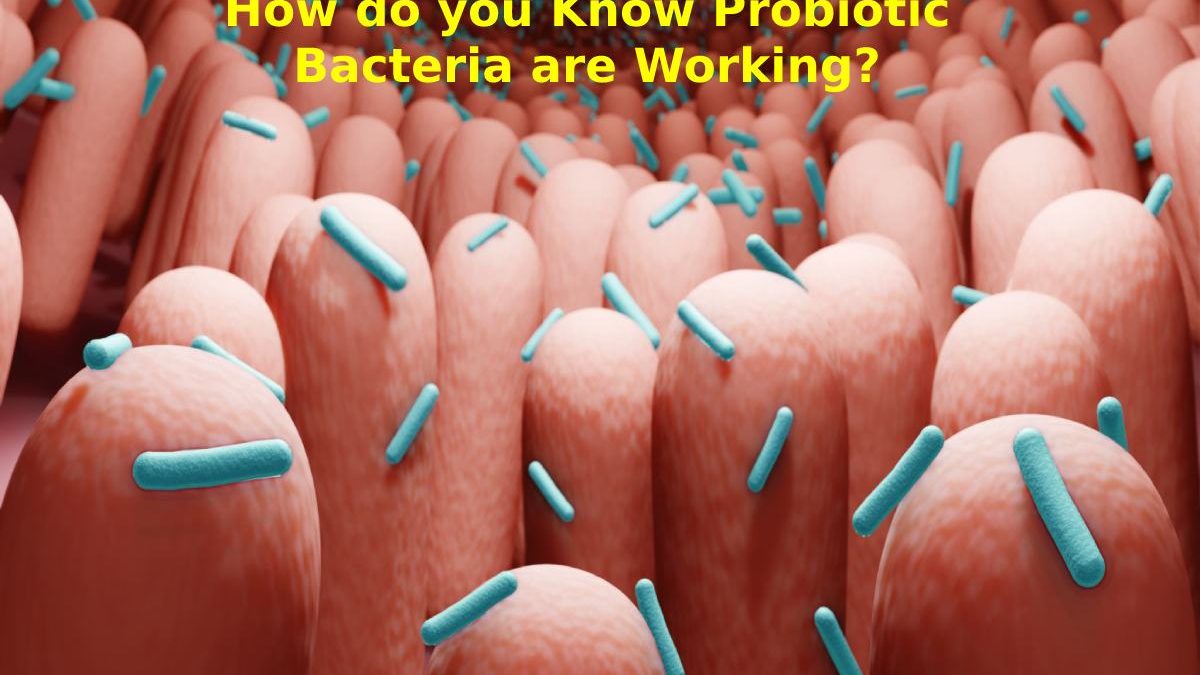Table of Contents
Introduction
Probiotic bacteria are the good bacteria in the gut that help maintain a healthy gut microbiome. Some positive effects of probiotics include fighting harmful bacteria, improving digestion and amendable bowel movements, supporting the immune structure, and helping with weight loss.
Your gut covers billions of good bacteria that care for many serious functions in your body, including digestion, nutrient absorption, and the immune structure. This world of good bacteria is known as your gut microbiome.
Signs that your Probiotics are Working
When you take a high-quality probiotic addition, you may notice several positive changes in your body, ranging from better digestion and more energy to a better mood and clearer skin.
Probiotic bacteria effort to rebalance your gut flora, which can quickly improve your bowel movements’ frequency and regularity and relieve bloating or gas. Over time, the positive effects of probiotic bacteria extend beyond one better digestion.
Therefore, reducing inflammation and rebalancing your immune system can bring about various helpful effects. Let’s discover some of them in more detail:
Better Digestion
Gut bacteria play a severe role in how quickly and thoroughly digest food. If your gut microbiome is out of stability, you may be experiencing digestive discomfort like gas, bloating, and stomach pain, especially after eating.
One of the first progressive effects of a high-quality probiotic is enhanced digestion and reduced symptoms such as bloating, gas, and stomach aches.
More Regular Bowel Movements
an imbalance in the conformation of good bacteria in the gut can donate to unbalanced bowel movements. For example, common diarrhoea can be a sign of pathogenic bacteria current in the intestines. A high-quality probiotic will help bring more of the good bacteria into your gut so they can flush out the bad bacteria.
On the other hand, constipation may be due to low mucus production or low motility of the intestinal muscles. Assured probiotic bacterial strains are known to raise mucus production, which can regulate constipation.
Increased Energy

Your body catches energy from the nutrients and micronutrients in your food, and your intestine plays a severe role in absorbing them. Therefore, an imbalance in the gut microbiome can lead to intestinal lining inflammation.
This inflammation prevents the proper absorption of nutrients, leaving you deficient in essential nutrients that provide you energy. Therefore, repairing your gut and decreasing inflammation in the stomach through a high-quality probiotic supplement can help improve your energy levels.
Better Mood
the heart and brain constantly communicate through many messenger signals, including neurotransmitters. Our gut bacteria can affect how brain chemicals are metabolize in the body. Interestingly, the gut produces some similar neurotransmitters as the brain, including the happiness hormone serotonin.
An imbalance in gut bacteria and inflammation in the gut can reduce the amount of serotonin produced, negatively affecting your mood. Additionally, they make certain chemicals that have been shown to decrease anxiety and depression.
Enhanced Immunity
The intestine plays a critical role in absorbing all the essential nutrients from your food. Many of these nutrients are necessary for immune support, including your B vitamins, Zinc, and Vitamin C. Any inequity in your gut microbiome can affect this nutrient absorption process and immune function.
Lower Anxiety and Better Response to Stress
the gut and the mind are in continuous communication with each other. An imbalance in gut bacteria often goes along with increased pressure. Some psychological disorders, including Alzheimer’s disease and depression, have been link to an altered gut microbiome.
Additionally, a leaky gut is often associate with inflammation in the brain, affecting your mood and how you respond to stressful situations. Omni-biotic stress release has been shown in clinical studies to improve positive attitude and focus by strengthening gut barrier function and acting on the gut-brain axis.
Weightloss
Several research studies indicate that the composition of the gut microbiome is related to a person’s metabolism and body weight. While the research is still in its early stages and ongoing. Research has shown that certain bacteria are more common in lean people. In contrast, other types of bacteria are more common in people who are overweight.
Depending on the type of bacteria you have more of, your weight may be affect. Also, your gut flora is out of stable, and there is an opportunity for harmful bacteria and other pathogens like Candida Albicans to grow.
Conclusion
Probiotics are supplements that cover the healthy bacteria in a person’s digestive tract. These good bacteria benefit break down food and can even work to break down hydrogen gas produced during digestion. Occasionally, probiotics can cause increased gas and bloat.

